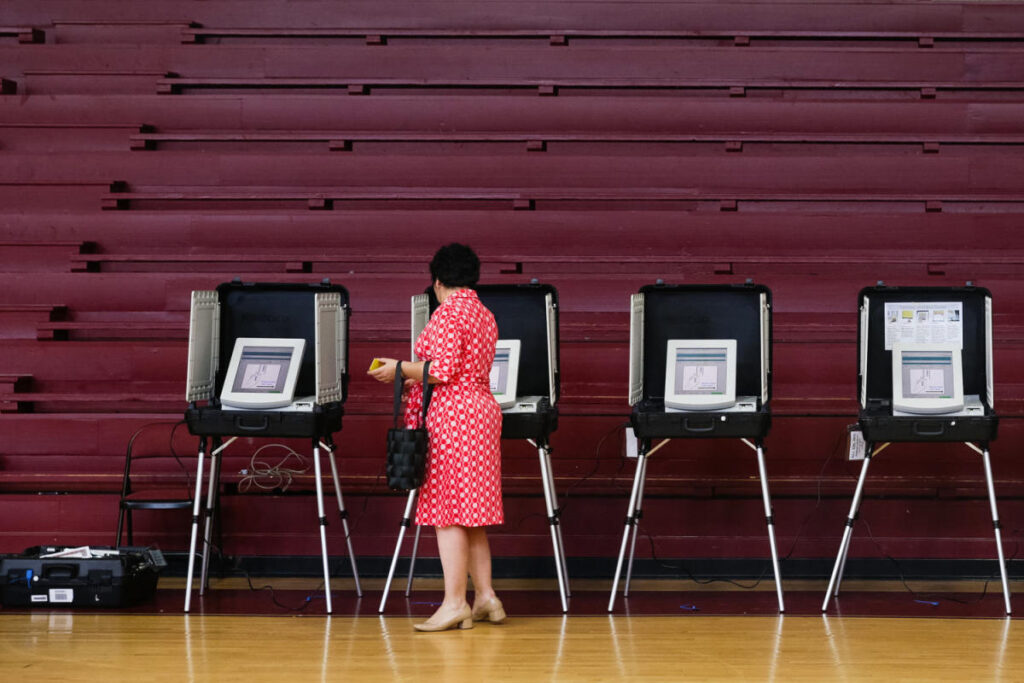On Wednesday, a Georgia judge ruled against several newly implemented election regulations proposed by the Republican-controlled Election Board, declaring them “unconstitutional” and non-compliant with state law. The decision was made by Fulton County Superior Court Judge Thomas Cox, who found fault with seven specific rules, including a contentious requirement for hand-counting ballots on Election Day. Cox asserted that the five-member board, consisting of three members aligned with former President Donald Trump, overstepped its legal boundaries, rendering the rules “illegal, unconstitutional, and void.” This ruling raises significant questions about the processes governing elections in Georgia and has sent ripples through the political landscape.
In conjunction with this ruling, another decision made by Fulton County Superior Court Judge Robert McBurney on Tuesday also targeted election regulations. McBurnney blocked the hand-counting rule, which many consider would lead to delays in the announcement of final results, and further emphasized that local election boards could not refuse to certify election results. These judicial actions reflect an ongoing concern among some Georgia voters and legal observers about the potential for destabilization in the voting and certification processes. A lawsuit initiated by two Georgia voters, including former Republican state Representative Scot Turner, highlighted these issues and brought these legal challenges to the forefront. Turner articulated his support for the ruling, framing it as a win for constitutional principles and the separation of powers.
The American Civil Liberties Union (ACLU), which represented civil rights organizations in the case, heralded the ruling as a substantial victory for voting rights. This underscores a broader context of ongoing criticism and legal scrutiny surrounding new election rules implemented in Georgia. The issues generated by the Republican-controlled Election Board have not only prompted scrutiny from local voters but also legal challenges from significant opposition entities, including the Democratic National Committee and the state Democratic Party, which initiated a lawsuit in August challenging these new regulations. These events signal a profound and contentious debate over election integrity and procedural legitimacy in Georgia.
As these legal battles unfold, early voting has commenced in Georgia, a key battleground state and a focal point following the state’s pivotal role in the 2020 presidential election. Reports indicate that approximately 300,000 ballots were cast on the first day of in-person early voting, setting a record that surpasses turnout figures from the first day of early voting in 2020. This surge in early voting further complicates the narrative surrounding electoral processes in Georgia and reflects the keen interest of voters in the lead-up to the 2024 elections.
The backdrop to these legal decisions and election rules is the ongoing turmoil stemming from former President Trump’s controversial tenure and the accusations against him and his associates regarding attempts to undermine the 2020 election results in Georgia. More than a dozen individuals linked to Trump, including prominent administration officials, were indicted for their roles in these efforts, creating a charged atmosphere as the state heads into another pivotal election cycle. Meanwhile, the legal proceedings regarding these indictments are currently stalled as various challenges unfold, including efforts to disqualify Fulton County District Attorney Fani Willis from her prosecutorial role.
This convergence of judicial rulings, voter mobilization efforts, and ongoing political controversies paints a complex picture of Georgia’s electoral landscape. The invalidation of the new election rules positions the state in a contentious spot as it seeks to navigate the balance between maintaining election integrity and addressing constituencies’ demands. With the 2024 elections approaching, the implications of these events will resonate far beyond Georgia, influencing national conversations about voting rights, election laws, and the broader political dynamics in a country increasingly grappling with questions of democracy and governance.

